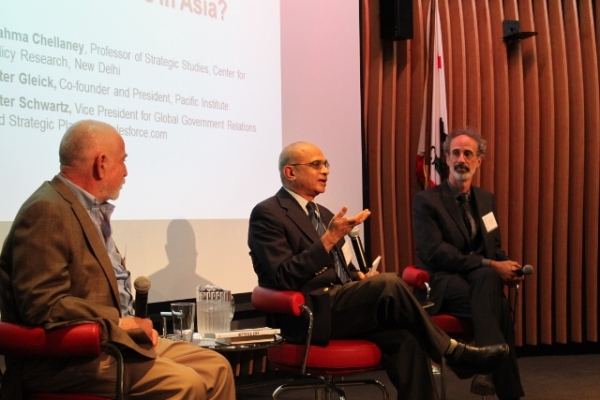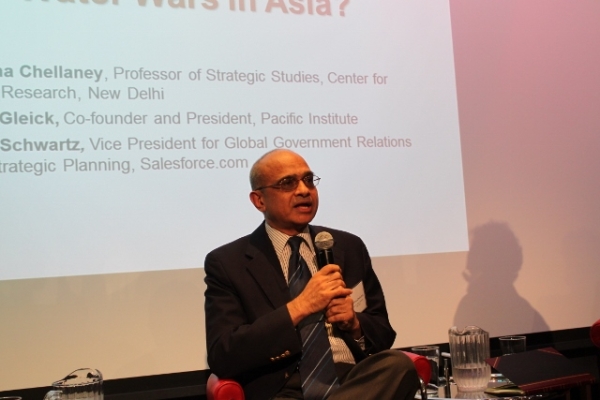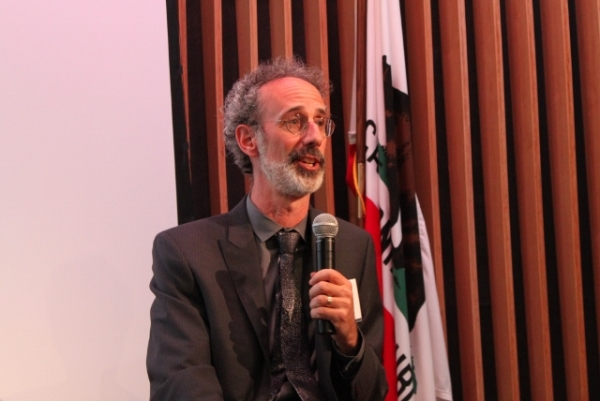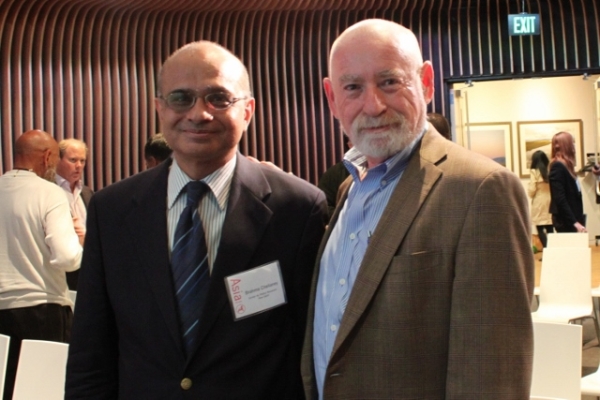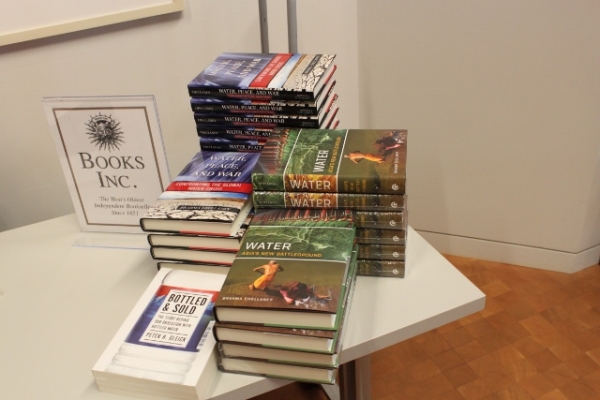Water: Conflict or Cooperation?
Winner of Bernard Schwartz Book Award speaks at ASNC event
“To what extent is water a factor in conflict and to what extent can we reduce water being a factor in conflict?” The question, posed by Peter Gleick, Co-Founder and President of the Pacific Institute, helped set the context for a panel discussion at ASNC on June 5 that looked at the potential security implications of water scarcity.
Gleick was joined by Brahma Chellaney of the Center for Policy Research (New Delhi), whose research has focused on water scarcity as a source of regional tensions, particularly in regions where the resource is shared. His 2012 book, Water: Asia’s New Battleground, deals at length with this topic and also won Asia Society’s 2012 Bernard Schwartz Book Award. The event was moderated by Peter Schwartz, a well-known futurist who founded the scenario planning organization Global Business Network. Schwartz is now Senior Vice President for Global Government Relations and Strategic Planning at Salesforce.com.
“Armies don’t have to march to battle to wage a water war,” argued Chellaney. “Water can be fashioned into a weapon depending on whether the state is located upstream or downstream.” He noted that international rivers create power struggles, such as when upstream countries reengineer water flows or downstream countries withhold data of their water endowments. In short, water can provide tremendous leverage among countries and can be used as a part of a larger strategy to elicit compliance among recipients.
Chellaney has spent his career focusing on emerging security issues that affect the world including climate change and energy, but believes that water scarcity will be the big issue in the coming years. This is especially true in Asia where climate change and other factors such as more demand for meat is intensifying and placing even greater strains on the region’s already finite supply of water. He argues that Asia's policy makers are not giving water the attention it deserves in public discourse. Instead “water policy is often left to hydrologists and engineers and not looked at strategically.” Integrating water in policy and planning will help to secure water over the long-term.
“It doesn’t get more fundamental than water,” Gleick argues adding that we must become better at managing this precious natural resource. “The challenge is that of efficiency, productivity, and management” when it comes to how we use water. He went on to argue that water has been looked from a “very narrow” perspective and that policymakers especially need to approach water resources management through an interdisciplinary lens and from multiple angles.
Gleick also offered practical advice on what we can do now to reduce water usage. In addition to modernizing irrigation systems and growing the rights crops for the right climates, he also noted that simple things like using efficient dishwashers, washing machines, and getting rid of grass can help.
“Water stress,” Chellaney believes, “is challenging us to innovate, live in harmony with nature, and to tap unconventional sources of supply.”

